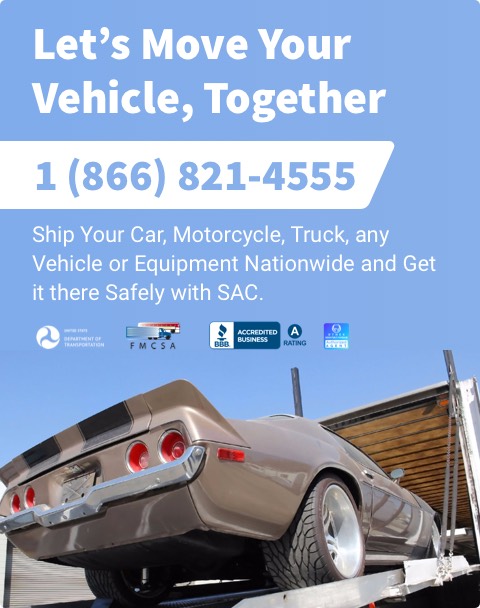This article explores GM’s innovative decision to supply Autocar’s heavy-duty vehicles with hydrogen fuel cells. It looks at the benefits of this technology, what it means for the business, how regulations are changing, and how the economy is affecting the move to more environmentally friendly heavy-duty transportation options.
This article looks at Tesla’s historic recall, which affected more than 2 million cars in the US and was brought on by safety concerns with the Autopilot. It looks at the scope of the recall, the critical role played by the NHTSA, Tesla’s calculated reaction, the potential legal repercussions, and the inherent difficulties with Autopilot technology.
This blog article looks at the recent changes in the US freight sector, emphasizing the rise of West Coast ports and Atlanta’s falling market share. It explores the environmental, geopolitical, and economic forces behind these shifts and talks about how they will affect companies and the freight sector going forward.
The Federal Motor Carrier Safety Administration has decided to remove 10 Electronic Logging Devices due to non-compliance, and this blog post explores their reasoning. It addresses the consequences for carriers and drivers, the possibility of device reinstatement, critiques the ELD self-certification procedure, and emphasizes Ship A Car, Inc.’s dedication to industry leadership and compliance with regulations.

This blog post addresses Florida’s plan to expedite the CDL testing process by permitting candidates to retake just the exam sections that they failed. It draws attention to the difficulties that exist now, the changes that have been suggested, the effects of ELDT legislation, industry support, and the possibility of achieving more efficiency without sacrificing safety.
This blog post explores the ‘freight recession’ harming the transportation sector in the United States, looking at its causes, the pandemic’s effects, and case studies of significant players. It provides insights into resilience tactics, stressing the value of human interaction, adaptability, and partnerships in navigating these trying times.
Warren Buffett’s Berkshire Hathaway faces a challenging legal dispute over its investment in Pilot Travel Centers. This blog post delves into the origins of the conflict, the legal controversy surrounding accounting practices, and the broader implications for corporate ethics and Buffett’s reputation.
The ambitious ambition that Washington State has to electrify its transportation sector is confronted with substantial hurdles, particularly in the trucking business. Inadequacies in the infrastructure, constraints imposed by technology, and worries over the economy all cause uncertainty regarding the practicability of this transformation.

There will be a big upheaval in the automobile industry as a result of Volvo’s decision to move to an electric-only lineup by the year 2026. Volvo is poised to disrupt the market for electric cars with the launch of Zeekr’s 007 sedan and the possibility of a wagon variation of the vehicle. As a result of these models’ superior technology, remarkable performance, and dedication to sustainability, Volvo has established itself as a frontrunner in the revolution of electric vehicles.
Wyoming is combating blow-over crashes with a new roadway messaging system, alerting truckers about high-risk conditions. This initiative, crucial during peak accident seasons, involves real-time monitoring and predictive messaging. The Wyoming Department of Transportation (WYDOT) uses data from the Commercial Vehicle Operator Portal for accurate forecasts. A significant number of these crashes happen on dry pavement, underscoring the unpredictability of such incidents.
This blog article explores the $653 million government financing program that aims to transform port infrastructure in the United States. It discusses the allocation of funds, insights into the needs for port infrastructure, significant project features, obstacles and objectives, and the importance of these investments in upgrading the country’s ports.
The extensive fleet liquidation of Yellow Corp, its consequences for the trucking sector in the United States, the strategic importance of auctioneers, and the company’s terminal futures are all covered in detail in this blog post.

Rivian’s decision to end its exclusive deal with Amazon marks a major shift in the electric vehicle landscape. This move opens the door for other companies to access Rivian’s innovative electric vans, catalyzing competition and innovation in sustainable transportation. With Amazon’s deployment of over 10,000 Rivian vans, this development underscores both companies’ commitment to environmental sustainability and reflects Rivian’s vision for a more accessible electric vehicle future.
Offen Petroleum’s acquisition of Douglass Distributing’s wholesale business marks a strategic expansion in the U.S. fuel distribution industry. This move adds over 150 gas stations to Offen’s network, deepening its roots in Texas and surrounding areas. Retaining Douglass’ employees showcases Offen’s commitment to workforce integration and operational continuity. The acquisition reflects broader industry trends of consolidation and diversification.
In Q3 2023, Daimler Truck faced significant challenges with supply constraints impacting their earnings. Despite these hurdles, the company showed resilience, particularly in North America. This analysis delves into DTNA’s sales performance, the global sales dynamics, and the company’s strategic responses to operational challenges. Looking ahead, Daimler Truck anticipates a normalized market in 2024, maintaining an optimistic outlook for the future.
